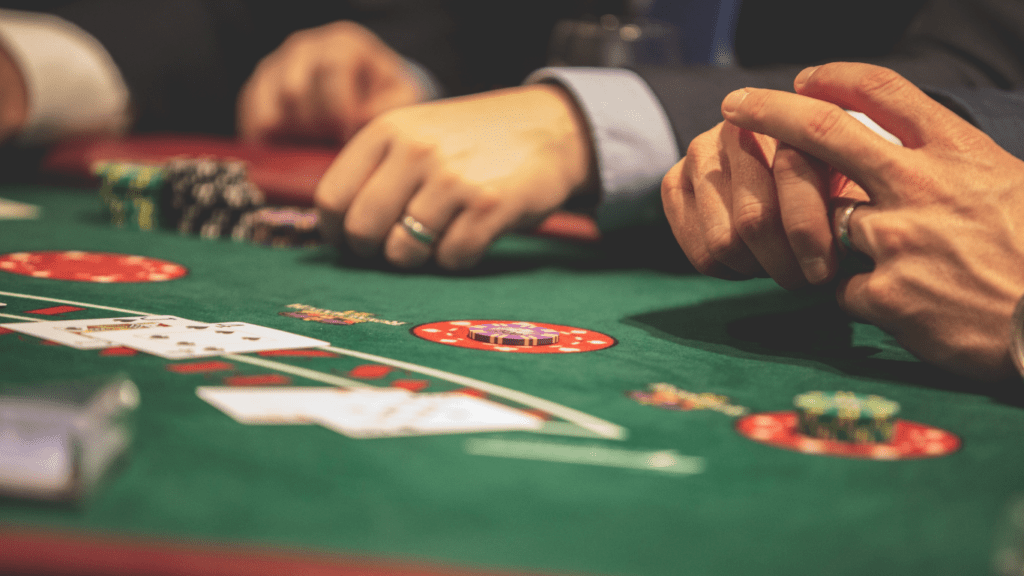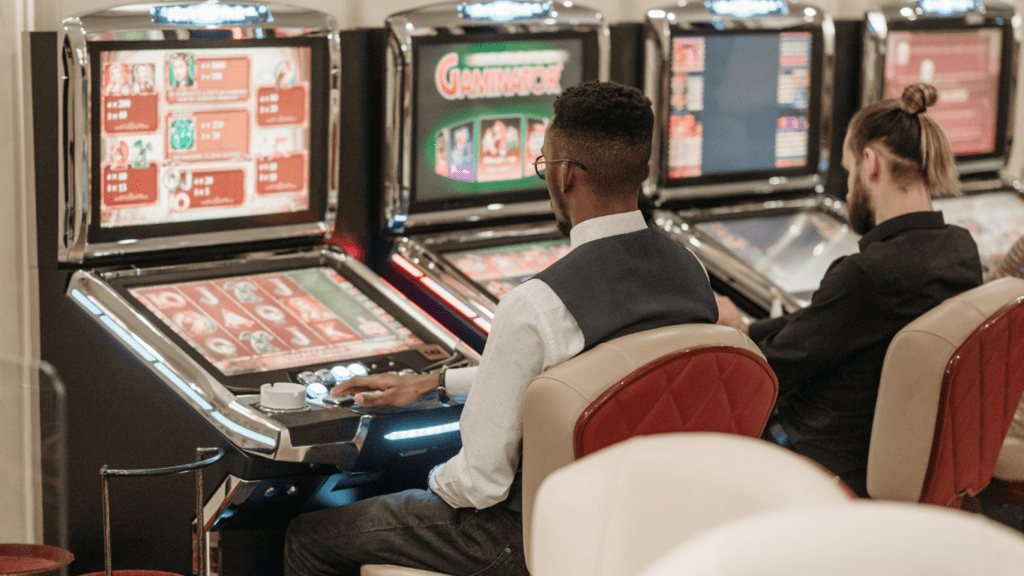Overview of Casino Gambling’s Social Dynamics
Casino gambling involves intricate social dynamics that reflect broader societal behaviors. I explore these dynamics by examining the role of casinos in local communities and social networking within casinos.
The Role of Casinos in Local Communities
Casinos significantly impact local communities by stimulating economic growth, generating employment, and providing entertainment.
Their presence attracts tourists, which boosts local businesses, from hotels to restaurants. According to the American Gaming Association, commercial casinos directly employed over 370,000 people in 2021.
Communities often see increased revenue from taxes, supporting public services like education and infrastructure.
While economic benefits are evident, casinos can also bring challenges, such as increased crime rates and gambling addiction.
Examining both positive and negative impacts helps understand the complete picture of how casinos integrate into their surroundings.
Social Networking Within Casinos
- Social networking thrives within casinos, as gamblers often establish relationships with other players, dealers, and casino staff.
- Regular visitors might recognize each other, creating a sense of community.
- Casinos offer various social spaces like bars and lounges, facilitating interactions among patrons.
These environments enable gamblers to exchange strategies, share experiences, and form friendships. High-stakes players might join exclusive clubs, providing access to private events and personalized services.
Casinos also host social events and tournaments, enhancing opportunities for networking. These interactions contribute to a more engaging and socially fulfilling gambling experience.
Psychological Impacts of Casino Gambling
Casino gambling exerts significant psychological effects on both individuals and groups. Understanding these effects helps paint a comprehensive picture of how gambling behaviors evolve.
Effects on Individual Behavior
- Casino environments often lead to altered individual behaviors.
- Gambling can create intense emotional highs and lows, affecting a player’s mental state.
- Casino-induced excitement can result in risk-taking behaviors that extend beyond gambling, impacting financial decisions and personal relationships.
- Numerous studies highlight how the sensory experience in casinos—bright lights, sounds, and social interactions—induces dopamine release in the brain.
This chemical response can reinforce gambling habits, potentially leading to pathological gambling. For instance, set loss limits are frequently disregarded as the need to recoup losses or sustain euphoria takes precedence.
Influence on Group Dynamics
Group dynamics often shift within the casino setting. Social facilitation theory suggests that individuals perform better or worse in the presence of others based on the task’s nature.
In gambling, the presence of a group can increase the likelihood of risk-taking behaviors due to peer influence and perceived social norms.
Groups in casinos can form subcultures, developing unique identities and hierarchies.
Leader-follower dynamics within these groups can affect individual gambling behaviors, often leading to collective decision-making processes.
For instance, group wins are often celebrated collectively, reinforcing social bonds, while consecutive group losses might lead to shared distress and heightened tension.
Understanding these social dynamics and psychological impacts of casino gambling can uncover deeper insights into both individual and group behavior patterns.
Economic Implications of Casino Gambling

Casino gambling has a significant impact on local economies, bringing both positive and negative consequences.
Job Creation and Economic Growth
Casinos create jobs for locals, from dealers and security personnel to administrative staff. According to the American Gaming Association, casinos support over 1.8 million jobs across the U.S.
These positions often provide steady income and benefits, improving the overall standard of living in communities.
In addition to direct employment, casinos stimulate local businesses by attracting tourists who spend money on hotels, restaurants, and entertainment.
This influx of visitors contributes to sales tax revenue, which governments can use to improve infrastructure, schools, and public services.
Potential for Economic Downturn
Though casinos can boost local economies, they also pose risks of economic downturns. People may develop gambling addictions, leading to financial distress and increased reliance on social services.
Areas heavily dependent on casinos might suffer if gambling revenues decline due to economic recessions or competition from new casinos.
Casino tax revenues are not guaranteed and can lead to budget shortfalls if expected funds fall short.
Studies, such as those by the National Gambling Impact Study Commission, indicate that communities often grapple with increased:
- poverty
- crime rates
- complicating the balance between economic gain and social costs
Regulatory and Ethical Considerations
Government bodies impose regulations on gambling to ensure fairness, protect consumers, and maintain societal norms.
Government Regulations on Gambling
Authorities regulate casinos through licensing, taxation, and operational guidelines. In the United States, state governments primarily oversee casino regulation, each imposing unique rules.
For instance, Nevada offers a permissive framework, while Utah bans most forms.
Regulatory bodies, like the Nevada Gaming Control Board, ensure compliance, monitor gaming activities, and address potential issues.
This oversight maintains integrity, preventing practices like money laundering and fraud.
Strict adherence to these guidelines ensures casinos operate legally and ethically.
Ethical Questions in Casino Operations
Casinos face ethical scrutiny due to their potential social impacts. Questions arise regarding their role in promoting gambling addiction and financial distress among vulnerable populations.
Some casinos, for example, offer self-exclusion programs allowing struggling patrons to ban themselves from gambling venues.
Additionally, they must balance profit motives with social responsibility, ensuring transparent operations and fair play.
Ethical considerations also extend to advertising practices, requiring honest communication about the risks associated with gambling. Balancing these elements proves crucial in maintaining an ethical operational standard.

 Elizabeth Garretinon is a talented and dedicated contributor at Spin Win Safely, where her passion for the online gambling industry shines through in her well-crafted and informative articles. While she is not the founder or chief editor, Elizabeth's contributions are vital to the platform's success, providing readers with valuable insights and practical advice.
Elizabeth specializes in writing detailed casino reviews, game strategies, and updates on the latest industry trends, ensuring that Spin Win Safely remains a trusted source of information for its audience. Her ability to present complex concepts in an accessible and engaging manner has made her a favorite among readers, who appreciate her clear and concise writing style.
Through her work, Elizabeth helps foster a culture of responsible gaming, encouraging players to make informed decisions and enjoy a safer gambling experience. Her dedication to excellence and commitment to the platform's mission make her an invaluable member of the Spin Win Safely team, contributing to the site's ongoing reputation as a leader in online gambling journalism.
Elizabeth Garretinon is a talented and dedicated contributor at Spin Win Safely, where her passion for the online gambling industry shines through in her well-crafted and informative articles. While she is not the founder or chief editor, Elizabeth's contributions are vital to the platform's success, providing readers with valuable insights and practical advice.
Elizabeth specializes in writing detailed casino reviews, game strategies, and updates on the latest industry trends, ensuring that Spin Win Safely remains a trusted source of information for its audience. Her ability to present complex concepts in an accessible and engaging manner has made her a favorite among readers, who appreciate her clear and concise writing style.
Through her work, Elizabeth helps foster a culture of responsible gaming, encouraging players to make informed decisions and enjoy a safer gambling experience. Her dedication to excellence and commitment to the platform's mission make her an invaluable member of the Spin Win Safely team, contributing to the site's ongoing reputation as a leader in online gambling journalism.
